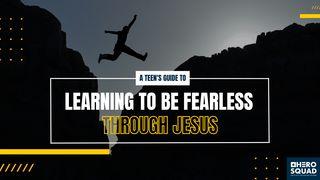Battle-Weary Parents for Parenting in CrisisSample


DAY SIX: Out of Bondage
My friend Lesli and I often talk about the psychological profile of a foster or adoptive parent. They’re strong, independent, self-sufficient, and proactive, traits that are certainly beneficial to them as they take on the role of parenting children from hard places. However, this make up of their strengths is also their greatest weakness. I should know…it’s mine. The very parts of my personality that give me the grit to get into the messy places with my children are the very parts of my personality that set me up for major failure, isolation, and fatigue.
In this portion of scripture, Jesus is warning us about the bondage of thinking we’re free from something in our life only to have it come back on us, only much worse, when our guard is down. Honestly, I see this happen a lot with battle-weary parents who are fighting for their children. They fight so long and so hard for and with their children that they totally lose sight of themselves and their own trauma, triggers, and tiredness. This is exactly the moment that the enemy returns and fills us with rage, disappointment, exhaustion, fear, worry, frustration, and resentment—seven wicked struggles that leave us in a terrible condition. It’s a subtle process that totally takes us out of the game, if we let it.
Rejection, rebellion, and extreme behaviors hurt. It doesn’t matter how ready you are to handle it. When it comes into your life and you find yourself in a position of crisis with your child, it hurts. Period. After you’ve given it your best and nothing seems to be working, you can find yourself withdrawing and becoming emotionally detached. Parenting children from hard places or crisis is a marathon, not a sprint. It’s going to take a long time to cross the finish line and there will be many points along the way that your mental struggle will take you out long before physical ability does. In moments of exhaustion, it’s tempting to give up and become apathetic and hopeless.
The only way to prevent this burnout and boomerang attack in your own life is to truly take care of yourself, body, mind, and spirit. Apathy is our enemy. We can never stop caring for others or for ourselves. In caring for ourselves we should understand our own triggers and become aware of our negative reactions to specific events in our family. Does a child’s tone of voice cause you to shut down and withdraw or go on the offense and raise your voice? Can a particular look cause you to become irrationally angry because it reminds you of how someone else in your life treated you? Did you grow up as a child of parents who were abusive, absent, or ill-prepared for parenting? If so, when you’re doing your best to not be like your parents, does it deeply hurt you when your child says they wish they had different parents or that they think you don’t care? Dealing with the residual pain of our own loss, grief, and fear is critical to parenting in crisis. Take care of yourself and seek out safe places that you can unload your burden and sadness. It’s only through your own vulnerability you can be fully available to help your child heal through their crisis.
We must stay alert to the open doors in our lives that sidetrack us on the road to healing both for our children and ourselves. Keeping ourselves healthy along the way is the best way to keep those doors into our lives closed and remain on alert for the tactics and schemes of the enemy. Be realistic with yourself. It’s okay to grieve. It’s okay to experience anger. It’s okay to be hurt. You aren’t super human, and no one expects you to be. Take time to refill your own tank. Do something today that you enjoy—read a book, pray, go on a walk, talk with a close friend, or simply lie in bed and watch your favorite show. Freedom is the way out of bondage. Give yourself the freedom to care for you. Your child needs it.
______
I encourage you to spend time with your spouse (or a trusted friend if you're single) to answer the following questions.
Discussion Questions – DAY SIX: Out of Bondage
1. What negative emotions are you struggling within this situation? Are you having difficulty letting them go?
2. Take time to evaluate the triggers and trauma in your own life. It’s possible that you have buttons you’re not aware of that are being pushed. Have you considered professional or spiritual counseling for your own past hurts?
3. Proverbs 15:1 talks about a soft answer turning away wrath. What are the ways that your own battle-weariness has caused you to be harsh? Have you provoked anger in your child unintentionally through your own responses?
4. If everything we say should be good and helpful in order to be an encouragement to those who hear them, what’s one way you can change how you speak to your child—especially in the midst of conflict? What effect do you think it could have on the outcome of your conflicts and arguments?
About this Plan

From the moment a child enters our life, parenting is a tough job. It’s even harder when a child is struggling with difficult behaviors. Parenting a child in crisis leaves parents worn out from exhaustion, frustration, and fear. God doesn’t leave us, even in the midst of our fears, failures, and fatigue. For foster and adoptive parents, or any battle-weary parent in warfare for their child.
More
We would like to thank Connections Homes for providing this plan. For more information, please visit: http://pamparish.com
Related Plans
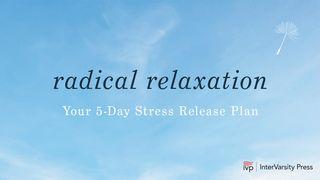
Radical Relaxation: Your 5-Day Stress Release Plan

Reconciling Grace

Satan, You Can’t Rule My Emotions

Healing Family Relationships Through Forgiveness
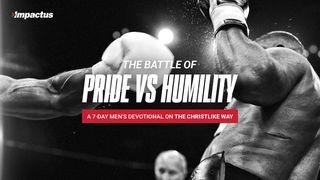
The Battle of Pride vs. Humility
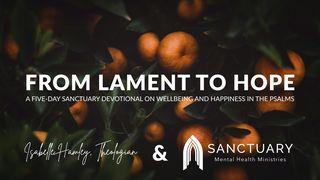
From Lament to Hope: Wellbeing and Happiness in the Psalms

Debt-Free by 31: 3 Biblical Keys That Made It Happen
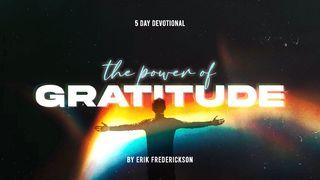
The Power of Gratitude

Lessons From Donkeys
